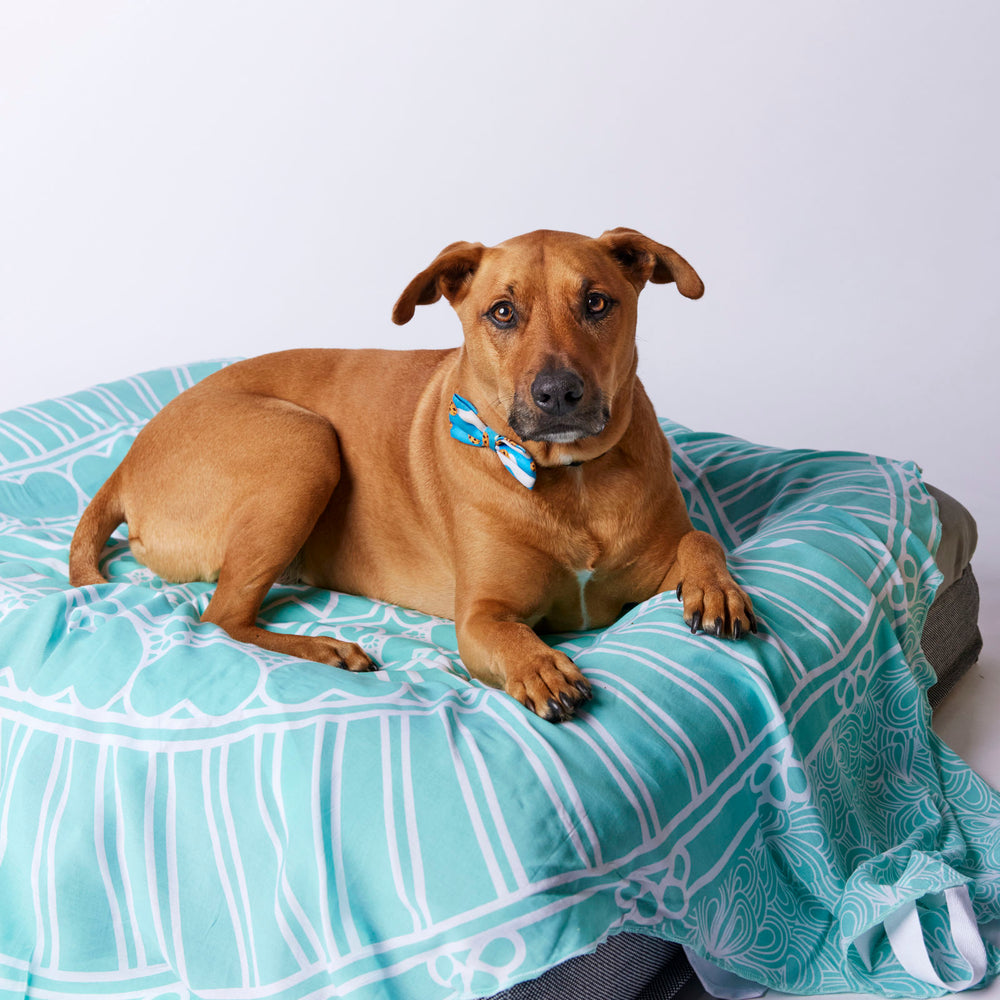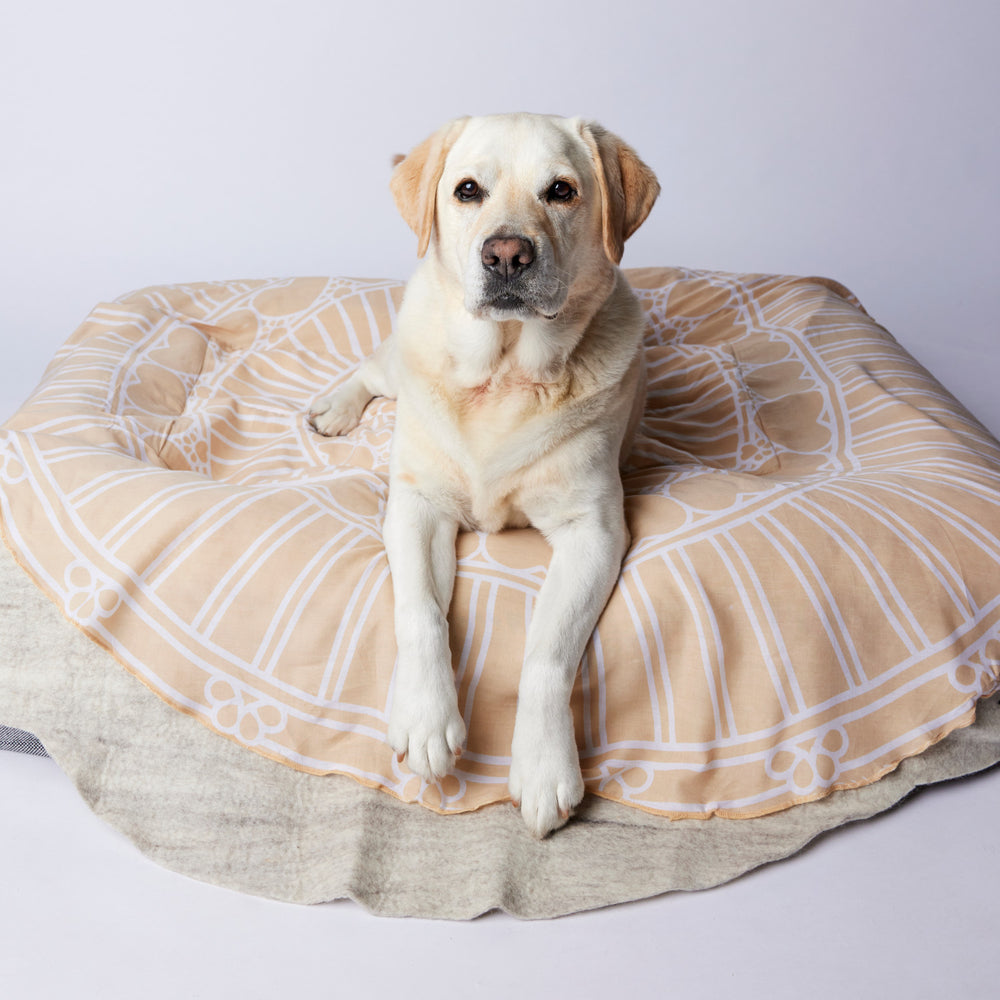Dealing with Sight and Hearing Loss in Senior Pets: How Pet Parents Can Make it Easier

Like humans, our pets suffer from failing hearing and diminishing eyesight in their senior years. Although these changes are not painful, they can be stressful for our aging pets. However, pet parents can help their pets by understanding what's happening and developing coping strategies for vision and hearing loss.
We’ve looked into what causes hearing and and sight loss, how to test for them at home, and come up with some ways we can assist our ageing pets as they navigate through this time of their lives.
Hearing impairment

Hearing loss in our older pets is caused by the damage or death of the inner ear's hair cells.
These cells are responsible for picking up sound vibrations, generating a nerve impulse, and sending it to the brain for interpretation.
Damage to our pets’ inner ears may be caused by an accident or noise-induced trauma, but cell death is generally due to genetics or as a consequence of ageing.
Hearing loss doesn't happen overnight; it takes several years and is gradual. Pet owners often miss the initial stages of age-related hearing loss as our furry friends hardly give us clues.
Initially, dogs often lose certain frequencies. They may be able to hear a man's deep voice but not a woman's higher-pitched vocals.
To test if our pets are losing or have lost their hearing, there is simple test you can do at home. Snap your fingers behind your pets head or jingle some keys or a bell. You should get a startle reflex or they look at you. If they don’t, try clapping instead. If there is still no response is it likely they are very stubborn and completely ignoring you, or they may have lost or are losing their hearing.
Hearing loss – what you can do
Hearing aids are very rarely used in dogs or cats as a treatment option for deafness. So lifestyle changes for pet owners and our senior pets will keep them safe and happy for years to come.
Here are our top tips:
- If you take your hearing impaired dog or cat walking keep on a leash or in a fenced yard. Remember they may not be able hear cars and other hazards.
- Learn to communicate using hand signals. Essential signals are: sit, stay, come, down, good and no.
- Avoid situations that could be dangerous. Don’t allow your pet to roam outside, near lawnmowers or other animals.
- Feed your pet food that has a stronger odour so they know when it is mealtime by smell and can find their food dishes.
- Use vibration, such as stomping your foot or clapping your hands, so they know you are nearby.
- Attach a tag to their collar with your contact number and a small note that says, “I am deaf”.
The most important thing is to maintain consistency and routine.
Of course, if you are concerned visit your vet for some tests as hearing loss may also indicate an infection and may not be permanent.
Vision loss

Vision loss in our older pets causes them to bump into things, and act hesitantly especially if going down stairs. They also have trouble navigating sidewalks and curbs, don’t recognise their owners from a distance and can not catch objects as they once did.
One obvious sign of loss of sight is the change in colour and look of your pets eyes, this could be caused by a cataract developing, could be congenital or even because of diabetes. If you notice this and it affects your pets mobility, get your vet to check it out.
You can do a simple test of your pets vision at home. Simply turn down the lighting to where you can see, then place cardboard boxes along a hallway. If when called your pet has difficulty navigating through the boxes, he or she may have reduced vision.
Vision loss - What you can do
If your senior pet suffers from vision loss, its not the end of the world. Here are some tips to help you enjoy your time with your senior pet despite them not being able to look lovingly into your eyes:
- Make sure your pet is familiar with their home environment and avoid moving furniture around. Doing this will reduce their stress, and enable them to easily navigate around.
- Keep your home free of hazards. Remove all obstacles and sharp objects and secure balconies and windows to avoid accidents.
- Improve lighting in the home, particularly in the areas where your pets spend most of their time. Use nightlights, patio and stair lights as these will help them to have better vision in low-light conditions.
- Ensure that food and water are in an accessible space. Avoiding moving food and water dishes to different locations if possible.
- Give them interactive toys that produce noise and possess interesting textures. This will provide mental stimulation as well as encourage continued exercise.
- Create a safe outdoor space where your senior pet can roam and explore. Fill it with familiar landmarks so that way they will know how to navigate back to the house entrance.
- Avoid startling senior pets and triggering their anxiety. Try approaching them from the front gently.
- In a new environment, stay with your pet until they get comfortable.
- In the case of severe vision issues, please consult with a veterinarian ophthalmologist for surgery or specialised care to improve their eyesight.
Caring for our senior pets with vision or hearing loss needs some adjustment and paying particular attention to them. It's painful seeing them lose their vision and sight, however, by recognising their impediments and making some changes at home we can help make it a better time for them.
As we always recommend, if you are concerned or don’t feel confident you can assist your pet d with their vison and hearing losses, consult with your vet.









